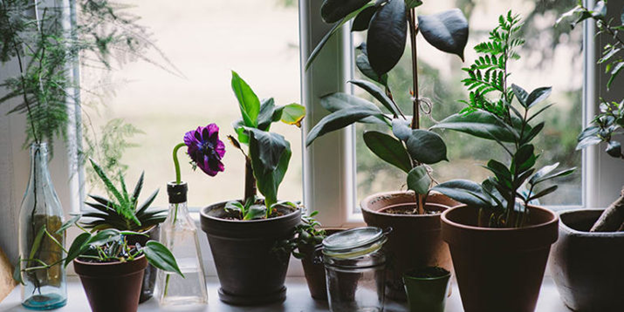By Goodnews Buekor
The lung is a powerful and significant organ that aids our breathing. It helps to purify and enhance the diffusion of oxygen in the blood. Modernization has negatively affected the environment, and the air we breathe is sometimes contaminated. Contaminants from chemicals, dust, pollen, pollutants, and various bacteria, affect the lungs. Furthermore, toxins and seasonal changes in the weather that trigger allergies can be detrimental to the lungs.
An excellent way to promote lung health is by cultivating lung-friendly plants inside the home and offices. The good news is that these plants are easy to grow, and serve perfectly for decoration. Some of these plants include:
- Eucalyptus
Eucalyptus is an evergreen plant commonly used as a natural cold formula and an active ingredient in many expectorant medication. It contains an active compound called eucalyptol, also called cineole, which is effective in relieving cough, fostering sinus passage, and wading off congestion.
According to the National Center for Biotechnology Information, Cineole possesses mucolytic, bronchodilating, and anti-inflammatory properties. It reduces the exacerbation rate in patients suffering from Cognitive Obstructive Pulmonary Disease (COPD) and relieves symptoms in patients suffering from asthma and rhinosinusitis.
It is important to note that the Eucalyptus plant can grow so tall to about 60 feet (18.29 m) height. Hence, cultivating a smaller size inside a container that can be transferred and planted outside when it outgrows the container will be preferable.
- Oregano
Origanum Vulgarae, normally called oregano, belongs to the ‘Lamiaceae’ family. Its name originated from an ancient Greek word, which means ‘joy of mountains.’
Oregano is a perennial herb that grows back year after year. It can be grown indoors and outdoors and is best cultivated in a container due to its invasive nature. In a 2016 Journal published by National Centre for Biotechnology Information, it was reported that Oregano contains carvacrol acid and thymol, which are major active ingredients in Oregano that helps traditionally in the treatment of respiratory disorders.
These substances help to open the respiratory tract and the nasal passage. It is also packed with antioxidants, which boost immunity and protect against colds and other illnesses.
- Lungwort
Pulmonaria Officinalis, known as Lungwort, is an herbaceous evergreen plant of Pulmonaria. Lungwort is very susceptible to environmental toxins. Hence, the areas where they are found are considered a good indicator of a healthy ecosystem.
According to research carried out in the Department of Inorganic Chemistry, Faculty of Pharmacy, Medical University of Lublin, Poland, Lungwort contains high mucilage content, which is beneficial to respiratory health and helps curb asthma and chronic bronchitis. Aside from the respiratory benefit it provides, the plant itself is beautiful and, at the same time, resilient.
- Elderberry plant
Elderberry has dark purple fruit that is rich in antioxidants. It is also known as anthocyanins and has the potential to enhance blood circulation as well as to open the lungs, capillaries, and blood vessels. The elderberry plant is best grown outdoors in soil with a pH of 6 to 8.
Elderberry is traditionally used for the prevention and treatment of common colds, flu, fever, and sinus infection.
- Peppermint
Peppermint is famously known for its minty taste and freshened smell. These are attributed to a specific active ingredient it contains; menthol. Menthol functions as a natural decongestant. It also provides an antihistamine effect, promoting free breathing. In a Journal titled “The effects of menthol isomers on nasal sensation of airflow,” published by the National Center for Biotechnology Information, it is suggested that aromatic herbs such as menthol have significant therapeutic potentials in treating respiratory ailments.
Furthermore, due to its antibacterial, antiviral, and anti-inflammatory attributes, it helps to decongest clogged sinuses.
Just like oregano, peppermint is also quite invasive, so cultivating it in a container, whether indoors or outdoors, would be preferable. It grows best in well-drained soil and minimal sunlight.
Asides from decoration, these five plants are beneficial to the lungs. Thus, just having them grown in your home can help reduce the chances of having breathing challenges and chest congestion.





Comments are closed.